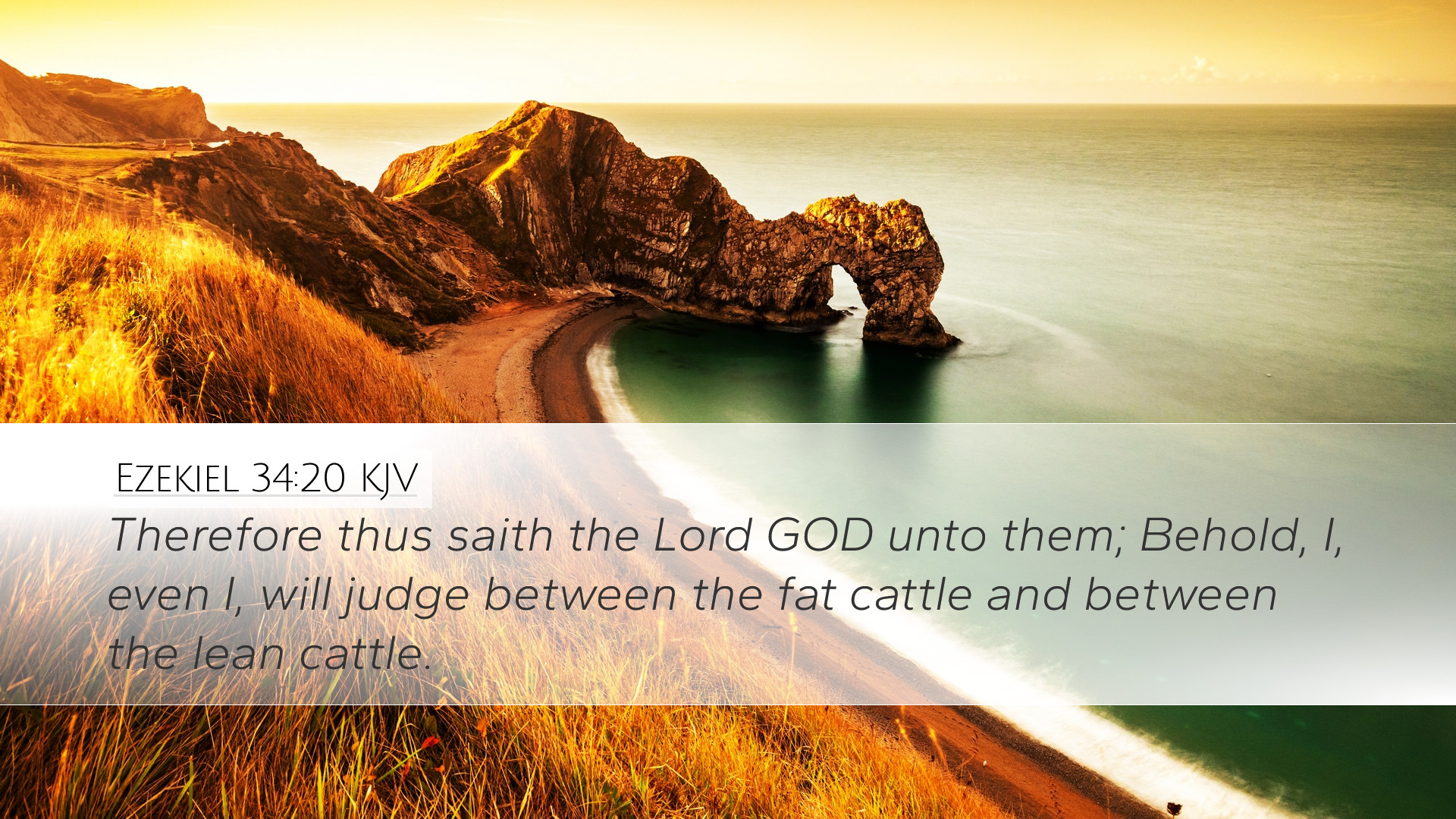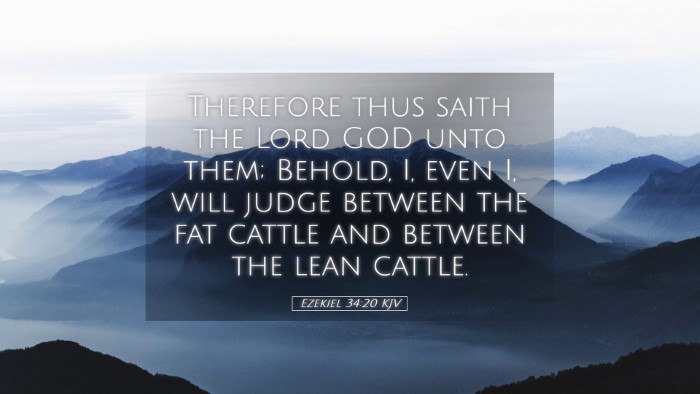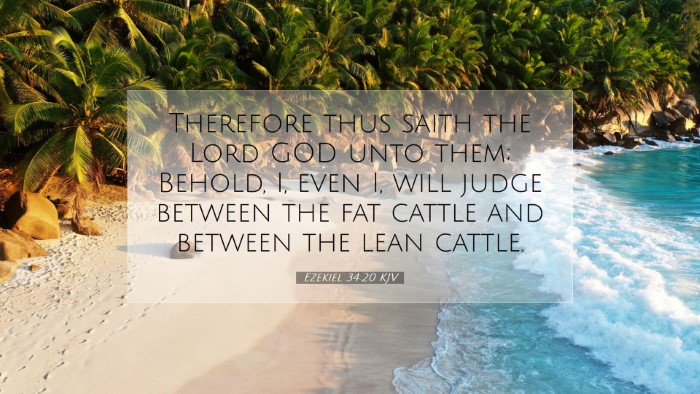Bible Commentary on Ezekiel 34:20
Ezekiel 34:20 reads: "Therefore thus saith the Lord God unto them; Behold, I judge between the fat cattle and the lean cattle."
Introduction
This verse occurs in a passage where God, speaking through the prophet Ezekiel, addresses the leaders of Israel, often referred to as the "shepherds." The context of this chapter is crucial as it illustrates God's concern for His flock and the failures of those in leadership. The idea of God judging between the fat and lean cattle serves as a metaphor for the division between those who are caring and those who are neglectful or predatory in their leadership.
Contextual Background
Ezekiel prophesied during a tumultuous period for Israel, during and after the Babylonian exile. The Israelites were facing dire circumstances due to the poor leadership they had received from their kings and religious leaders. God had strong words against these shepherds who fed themselves while neglecting the flock (Ezekiel 34:2). This chapter contrasts the good shepherd, which is a reference to God Himself, and the oppressive leaders of Israel.
Interpretative Insights
Commentators have provided various interpretations of this analysis of the "fat" and "lean" cattle:
- Matthew Henry: In his commentary, Henry emphasizes the metaphor of cattle to illustrate the distinction between those who take advantage of others and those who are oppressed. The "fat cattle" represent those who have amassed power and privilege, often at the expense of the "lean cattle," who symbolize the weak and vulnerable. God's judgment is seen as a divine response to the inequalities perpetuated by leadership.
- Albert Barnes: Barnes connects the imagery back to the practices of shepherding in the ancient Near Eastern context. He notes that healthy, well-fed cattle signify leaders who have been nourished and enriched by their positions, leading to negligence towards the poor and downtrodden. He expands this to indicate that God's judgment is aimed at restoring justice and ensuring that the needs of all are met.
- Adam Clarke: Clarke introduces the prophetic implications of this judgment, interpreting it as a promise that God will intervene. He articulates that the lean cattle symbolize those who are suffering under the oppression of leaders who are not acting righteously. Clarke points out that the governance of Israel should reflect God’s character of justice, and this judgment represents a divine assessment that is coming upon those who have failed their duty.
Theological Implications
This verse raises important theological themes relevant for pastors, theologians, and scholars:
- God’s Justice: The imagery of judgment between the fat and lean cattle highlights the nature of God's justice. It underscores that God sees the inequalities among His people and is poised to act against injustices prevalent in society. This reminder is particularly relevant for church leaders who must reflect on how they shepherd their congregations.
- The Role of Leadership: This verse serves as a critique of leadership, making it clear that leaders are accountable to God for their stewardship over others. Pastors and Christian leaders are urged to examine their own practices and ensure that they are fostering growth and health in their ministries rather than exploiting their positions.
- Divine Intervention: The reference to God’s judgment also instills hope — the assurance that God will recognize the plight of the oppressed and will act decisively in His timing. This aspect encourages both leaders and laity to trust in God’s plans and to work towards justice and healing within their communities.
Applications for Today
The implications of Ezekiel 34:20 resonate strongly in modern contexts:
- Leadership Accountability: This passage calls leaders in both the church and society to engage in self-examination and accountability. Leaders should strive to be protectors and caretakers of their communities, actively opposing any form of exploitation or neglect.
- Care for the Vulnerable: The differentiation between fat and lean cattle emphasizes the need for the church to advocate for marginalized groups. This is a call to action for congregations to be sources of support and resources for those who are struggling.
- A Call to Righteousness: The wider implications of God's judgment should inspire believers to pursue righteousness, not just in their personal lives but also in their communal interactions. This includes standing against injustice and working towards a fairer and more compassionate society.
Conclusion
Ezekiel 34:20 serves as a powerful reminder of God's commitment to justice and His desire for leaders to care for those under their charge. Through the insights gathered from public domain commentaries, we grasp the depth of this verse and its application across various contexts. As pastors, students, and scholars, let us heed the message of accountability, righteousness, and divine justice that resonates from this prophetic announcement.


